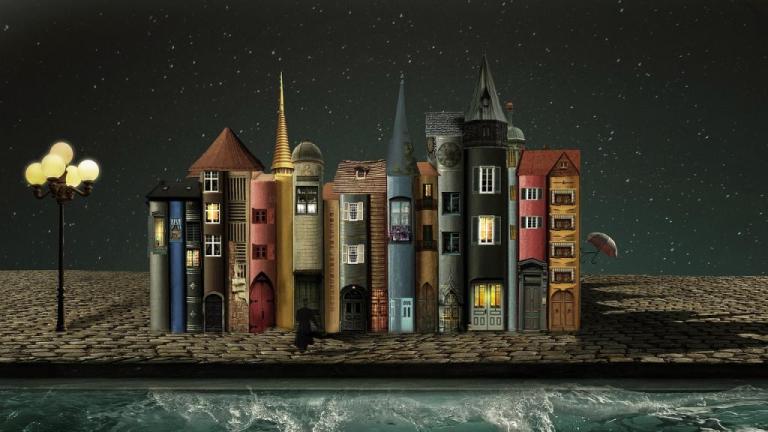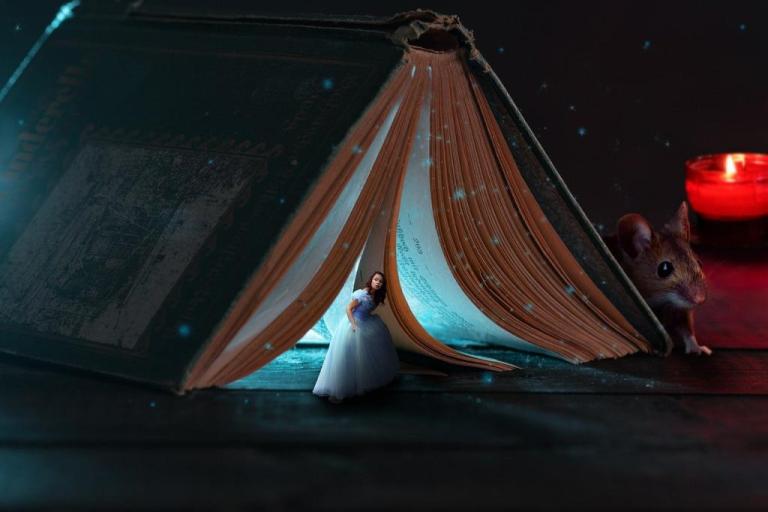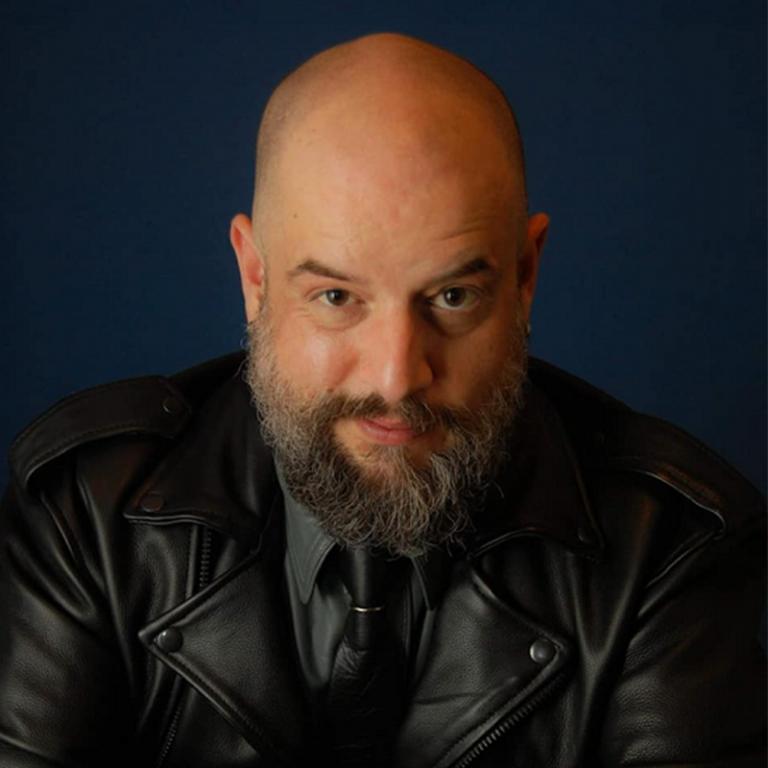“Nothing is true. Everything is permitted.” –Hassan-i Sabbāh
“Everything is true. Even false things are true.” –Malaclypse the Younger
“Ignorance doesn’t make stuff not exist.” –Bucky Katt
So I just recorded an episode of the Seeking Witchcraft podcast, which was awesome (details to be shared as soon as they become available), and at one point the host (Ashley) asked me, “Can people practice Chaos Magic without realizing it?”
In response, I talked about the history of sigil-making, and how a lot of people who utilize the rearrange-the-letters-and-make-a-design system don’t realize that it came out of Chaos Magic. And we discussed eclecticism, and how Pagans who take a magpie approach to their magical practice often find themselves very comfortable within the Chaos paradigm.
So overall, yeah, I feel like I answered the question satisfactorily. But something was niggling at me, and I couldn’t for the life of me figure out what it was.

The next day, I was idly scrolling through my social media, alternately yawning and giggling at the current crop of Greyfaced Pagans complaining about Wiccans who “preach” the Threefold Law, which…
Wait. Let’s stop right here for a second. Maybe there really is some nefarious cabal of Wiccans out there hijacking online forums and demanding that everyone do as they say or else, but I myself have never encountered them. What I have seen, time and time again, is some variation of the following.
First Pagan: “Blah blah blah something about hexing.”
Second Pagan: “Doesn’t hexing go against the Threefold Law?”
279 other Pagans who usually never post: “OMG STOP OPPRESSING US.”
Thing is, if someone on the Internet mentions a concept you don’t agree with, and you feel like that person is somehow inhibiting your ability to work magic offline, that’s… telling. Just sayin’.
Anyway, I was chuckling at a batch of comments about how awful the Threefold Law is, when something occurred to me:
The Threefold Law is an excellent example of an unwitting application of Chaos magical theory.
Don’t yell at me just yet, y’all. Hear me out.
Figments of Reality
The first appearance of anything Threefold in relation to Witchcraft is in Gerald Gardner’s terribly written but wildly entertaining novel High Magic’s Aid, in which the character Morven states:
“Learn, in witchcraft, thou must ever return triple… But mark well, when thou receivest good, so equally art bound to return good.”
Right away, we can see that the intent here is much different from the modern interpretation of the Threefold Law. Instead of the Universe dumping exponential harm or blessings on the Witch, it’s the Witch themself who’s tasked with giving what they get in spades. So that’s interesting. And in truth, it’s a lot of responsibility for said Witch to take on — more so than haplessly dodging payback from Vengeful Fate.

I vaguely recall the Threefold Law popping up in books during the late 80s and early 90s (my friend Sarah is pretty sure she read about it in one of Laurie Cabot’s), but what I remember most clearly is the 1996 movie The Craft, when the mysterious shop owner tells the young Witches that whatever they send out will come back to them “times three.”
Here’s how my still-developing Pagan brain interpreted that scene:
- The Witchcraft in this movie is based on Wicca.
- The other Wiccan elements (no pun intended) in the film are recognizable.
- Ergo, this whole Threefold Law thing is probably legit.
I haven’t taken a poll or anything, but I’ll hazard a guess and say a lot of budding Wiccans were influenced by The Craft, to the point where the Threefold Law became a crucial part of their practices. But if the idea itself came from a pulp novel and gained popularity through a movie, can it even be taken seriously?
When incorporated into an operative belief system, yes. It absolutely can.
As Remembered by the Storyteller
Many years ago, having been a Witch for almost a minute, I cast a binding spell (not the one from The Craft; I used the one in The Spiral Dance) on a codependent co-worker who’d taken to stalking me. The co-worker suddenly decided to transfer to a different location, never to be heard from again, which was nice. But in the days after casting the spell, I started randomly bumping into things, and I ended up with a few cuts and bruises. Which I figured I deserved, because Threefold Law, right?
The reality was that I felt guilty about the spell, and my conscience compensated by assigning retributive meanings to my natural clumsiness. But I also felt like the minor injuries were totally worth it. And for a long time, the Threefold Law served me well: I want to cast a not-entirely-ethical spell. Am I willing to accept any consequences? Check YES or NO before proceeding.

In due course, I realized that I was a lot more willing to accept consequences than I had been when I first started out. And I also realized that whenever I performed any kind of “manipulative” magic, there weren’t a whole lot of consequences to be found. And then I ended up Gardnerian, and the High Priestess who initiated me told me, “Oh, I never curse anyone… unless I really want to.” Which put the kibosh on my relationship with the Threefold Law.
Although “thou must ever return triple” has since become a litmus for how far to take things during the few times I’ve actually had to curse someone. So that’s, y’know, handy. But I’ll tell you something else. The people who contribute most to the “realness” of the Threefold Law are not those who adhere to it: Instead, it’s the people screaming Philippic against it.
The things that make us angry tend to be, on some level, the things we’re most afraid of. So if someone is having a meltdown over the Threefold Law, it stands to reason that fear is at the root of the situation… and if they’re afraid of it, then, at least in their mind, it must exist.
Barbra-ous Last Words
Have you ever heard of the Streisand Effect? The term comes from an incident in 2003, when the California Coastal Records Project accidentally took a photograph of Barbra Streisand’s seaside home. Understandably not wanting people to have any idea where she lived, Streisand attempted to have the picture removed from the record and suppressed, which inadvertently drew attention to it. Suddenly, everyone knew where she lived, and further attempts to get rid of the picture just increased that awareness.
It’s the same with the Threefold Law. Whenever someone rants about it not being “real,” the concept gets reinforced, and despite their antagonistic efforts, it becomes realer and realer — not just to the people who believe in it, but to the people trying their damndest not to believe in it.

When all is said and done, if you believe in the Threefold Law, that’s fine: It doesn’t hurt anyone. And if you don’t believe in the Threefold Law, that’s fine, too: It causes no harm. Or, if you don’t want believe in the Threefold Law at the moment but decide to tuck it away in your toolbox in case you have a use for it later on, go for it: That’s Chaos AF, and most amenable. But publicly stomping on someone else’s beliefs to bolster your own — possibly because you’re projecting the way you were treated when you were a newbie — just makes you a bully. And that makes me hurt for you.
And also, after going back over what I’ve written so far, I feel like we should really, objectively look at what we’re talking about here: We’re talking about what happens when we use supernatural power to influence the world around us; we’re talking about the theoretical repercussions of causing changes to occur in accordance with will. I mean… we’re talking about magic.
Who could ever believe in that?



















